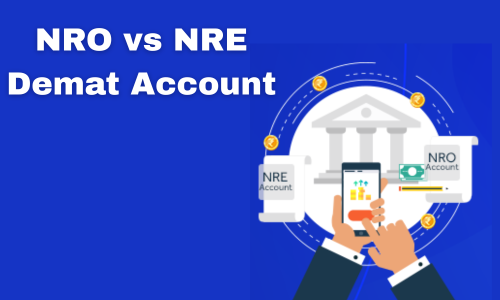In this article, we will discuss about...
Introduction
If you’re an NRI (Non-Resident Indian) and you’ve invested in Indian mutual funds or stocks, you’re probably wondering what happens when you sell those shares. What about taxes? Can you repatriate the funds? Are there legal concerns?
These are among the most frequently asked questions I receive from NRIs looking to navigate their investment journey in India. In this article post, I’ll walk you through everything you need to know—from opening the right Demat account to understanding TDS, capital gains, and FEMA rules.
Let’s break it down in a simple, conversational way.
Don’t let reading hold you back, Watch our video instead
Can NRIs Invest in the Indian Stock Market?
Absolutely, yes!
As an NRI, you are allowed to invest in the Indian stock market. Whether you’re keen on stocks, mutual funds, or ETFs, the Indian market is open to you. But the real question is: How do you invest as an NRI?

How Can NRIs Start Investing in India?
To begin, you’ll need a Demat account—that’s where your securities are held electronically. Now, there are two main routes you can take:
-
NRO-based Demat Account
-
NRE-based Demat Account (PINS Account)
Let’s dive into the differences and see what works best for your situation.
NRO vs. NRE Demat Accounts: What’s the Difference?
NRO Account (Non-Resident Ordinary):
This account is for managing income earned within India—such as rent from property, dividends, or pension income. When you open a Demat account linked to your NRO account, you’re using Indian-sourced funds to invest.
NRE Account (Non-Resident External):
This account is designed for your foreign income. If you send money from abroad and want to invest that money in India, you’ll need to open a PINS (Portfolio Investment Scheme) Demat account that’s linked to your NRE account.
Funds in an NRE account are freely repatriable, meaning you can send money back abroad whenever you like—without filing forms like 15CA/CB.

Tax Deduction Differences: What NRIs Must Know
Here’s where it gets interesting. Taxes work differently depending on which account you use.
Using an NRO Demat Account (Non-PINS):
-
No TDS (Tax Deducted at Source) is deducted when you sell shares.
-
But, you’ll need to calculate your own capital gains and pay taxes at the time of filing your income tax return in India.
Using an NRE Demat Account (PINS):
-
TDS is automatically deducted every time you sell a share or mutual fund.
-
The TDS is not the final tax—it’s just an advance tax. If it turns out you paid more than required, you can claim a refund when you file your return.
Selling Shares & Repatriating Funds: How It Works
Let’s say you’re using your PINS account to sell shares. Once you sell, TDS is deducted, and the net proceeds are credited to your NRE account.
At the end of the financial year, you calculate your actual capital gains. If the deducted TDS exceeds your actual tax liability, you file a return and get a refund.
On the flip side, if you’re using an NRO-linked Demat account, no TDS is deducted. But that means you must be diligent in calculating and paying the correct taxes during return filing. This requires a bit more work on your end.

Can You Send Money to Parents in India for Investment?
This is one of the most frequently asked questions from NRIs. And the answer is: It depends on your intention.
Legal Scenarios
-
You send money to your parents for their personal use (like monthly expenses), and they independently invest a portion of it? Totally fine.
-
You gift a sum to your parents, and they invest it in their own name, and you have no future claim on that money? Also legal.
Not Allowed
If your intent is to:
-
Send money to parents
-
Have them invest in their name
-
And then take back the money (and profits) abroad later
This is not allowed. It violates FEMA (Foreign Exchange Management Act) regulations—even if all taxes were paid.
Authorities can impose penalties, and that’s not something you want to deal with.
How Can Authorities Find Out?
Through bank statements and money trails. If you send, say, ₹5 lakh per month to your parents, and five years later, the same amount + profits come back to you abroad, the tax authorities might connect the dots and question the legality.
Real-Life Example:
I once took a ₹25 lakh loan from my parents to start a business. Due to COVID, plans got delayed. I temporarily invested that money. Despite being a CA, I got a notice. Tax department claimed ₹1 crore in taxes, interest, and penalties—just from this one transaction.
Lesson? Even if your intentions are clear, avoid giving tax authorities any reason to doubt you.
Can NRIs Gift Shares to Family or Relatives?
Yes, you can gift shares, but make sure it’s done the right way.
-
Draft a gift deed.
-
Ensure it’s an irrevocable, non-reciprocal gift.
-
Don’t make it a roundabout sale—like giving shares in exchange for property. That’s a taxable transaction, not a gift.
The law allows you to give from natural love and affection, not as a backdoor transaction.
Can an NRI Have a Joint Demat Account with a Resident Spouse?
Yes, joint Demat accounts between an NRI and a resident spouse are permitted. But here’s the golden rule:
Use only one source of funds.
If you mix foreign and Indian sources, it could create complications. And let’s be honest—no one wants to deal with extra paperwork or scrutiny from the tax department.

Key Takeaways for NRIs Selling Shares in India
Let’s wrap this up with a quick checklist:
-
Choose the right Demat account based on whether you’re using Indian or foreign income.
-
Understand TDS rules and how they differ for NRO and NRE accounts.
-
Be clear about capital gains taxes and your obligations.
-
Avoid routing investments through relatives if the goal is to repatriate the money.
-
When gifting shares, make sure it’s genuine and well-documented.
-
If you’re opening joint accounts, stick to one funding source.
